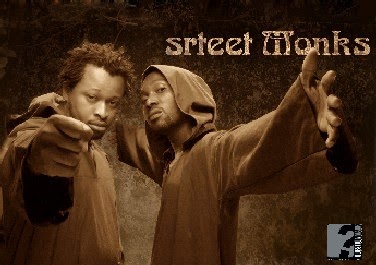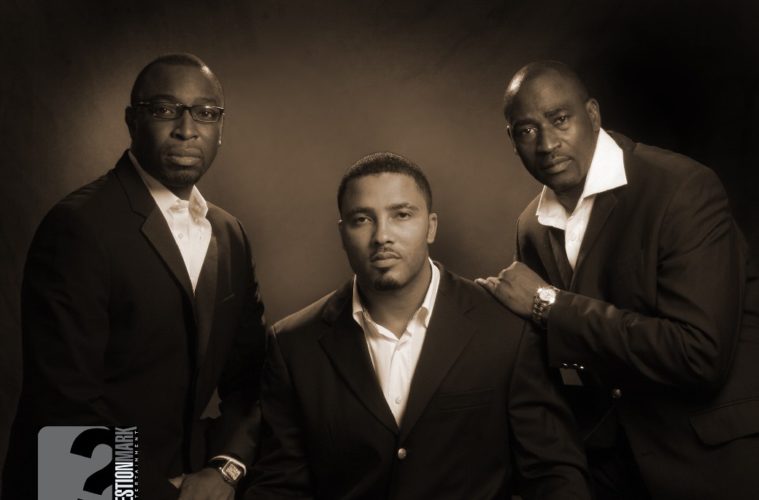Running a record label in Nigeria is no mean feat, especially in a terrain where the terms of signed contracts are not adhered to and the industry is not well structured to ensure that the label recoup its investments.
Shortly after the Nigerian pop scene burst to life in the late 90’s and early 2000’s with the emergence of groups like Remedies, powered by Kennis Music, their success spurred the birth of a number of record labels like Storm Records, Westsyde Music, Little Fish Records amongst many others. These labels paraded top talents in their bid to get a piece of the pie from the emerging industry but for observers, one label stood out and caught the attention of many, that label was Question Mark Records.

The label was birthed in 2005 and owned by Kevin Luciano-Gabriel, who had worked with MTV and had just returned to the country at that time. Question Mark had Gbenga Shokefun, former manager of the successful female group Kush, as Vice President and operated out of a well-equipped office and studio at Victoria Island, Lagos.
The label housed some of the finest talents in the land. At inception, they paraded names like Modenine, Asa, Silver Saddih, Street Monks and had the legendary Cobhams Asuquo as their in-house producer, with Nnenna, who featured on Mode’s hit single “Cry”, also a part of the family.
Later on, they signed other acts like Star Quest winners D’Accord, Harry Songz and Ego Omalicha known as Safarie. The label stood out not just because of the names on its roster but because of the clout of the owners, and also their promise to promote their artists on affiliate international platforms. They set a standard with their quality music videos, and the first set of Question Mark All Stars put together an anthem “Street Life” that featured on MTV World Charts.
But the Question Mark era was one that offered so much, but birthed so little. Rather than focusing on pushing their artists, the label got sunk in a myriad of controversies – all within a period of three years. Q-Mark would become a case study on how not to run a record label. Here are some of the reasons why:
Unfulfilled Expectations
Having an act in the mould of an Asa on your label could be likened to when Kennis Music added 2Face to their ranks, or when Manchester United captured a young Cristiano Ronaldo. After being overlooked by judges in the preliminary rounds of the maiden edition of Star Quest (which KC Presh went on to win), Asa developed a working relationship with producer Cobhams Asuquo. The duo combined to deliver Asa’s first major single “Eye Adaba” which launched not just her career but, many would argue, that of the label. No sooner had the nation began to embrace the birth of a new star unto the scene did things begin to fall apart between both parties.
In 2006, Asa left the label unceremoniously without even releasing an album officially. She had alleged that her life was being threatened by Kevin Luciano and the label was trying to sign her onto a foreign deal without her consent. This led to major fallout as Question Mark claimed to have rights over her materials and released her songs in a poorly-compiled album titled The Captivator.
Asa eventually left for France where she teamed up with Naive Records who produced her debut album Asa in 2007 and like they say, the rest is indeed history.
Similarly, at the point he signed with Question Mark Records, Modenine was the rapper that everyone wanted to be. After his education at PayBackTymeRecords and coming into public consciousness with Malcolm IX and the The Lost Sessions mixtape, Mode was getting all the right buzz. The listeners were beginning to warm up to him and it was a case of how well he could capitalise on the moment. So he evidently needed a label for direction, promotion and helping to find a balance between his art and his marketability.
Q-Mark provided Mode with all that, and this showed in the only album he released on the label which, arguably remains his finest and most successful album E Pluribus Unum. The album, which paraded songs like “Cry” and “Nigerian Girls”, won major honours across Africa and helped strengthen the label’s foothold in the industry. But with the controversies trailing the label, Mode’s career stagnated and the rapper had to leave. However, many are still of the opinion that his spell with the label was the best period of his career.
Street Monks: The group featured two talented acts in Ruffman, a reggae/dancehall artiste and T-Base, an R’n’B act. Ruffman at that time was a solo artiste who used to rap, he had made the final four of the Lyricist Lounge competition alongside the likes of Modenine and Slam, it was at this event which had Gbenga Sokefun as one of the organizers that he was noticed and the ex- Kush manager took to him.

When Question Mark was set-up, Gbenga brought Ruffman on board and together with Kevin Luciano, they felt it would be better if he combined with T-Base to form a group. The idea was actually working, the duo created a good blend but they also soon fell out with the label with Kevin Luciano holding a press conference to announce their exit claiming they were engaged in ‘anti company activities’.
Silver Saddih was on the path to becoming the next big thing in RnB/Soul across the country, his single “La La” was one of the biggest songs in the land. He released his album The Bard under the label and also recorded a song with Asa titled “Soul”.
Although Saddih’s contract with the label ended in 2008, the situation surrounding the label never gave him the right platform to take off. He would later end up in jail for months for crimes the singer claims he was never involved in.
The Unending Controversies
Outside the high-profile exits and the Asa episode, which almost brought the label to a halt due to unending court cases, Kevin Luciano had a dark cloud that perpetually hung over him. He had a reputation for being hot-tempered and was reportedly involved in many fights with his artists and business partners. Whether rightly or wrongly, Kevin cut the image of ruthless label owner who was hell-bent on getting results by any means necessary.
In 2007, Kevin was arrested by the police after a business partner Dejo Richards, who had been introduced as the new CEO of the label after the departure of Gbenga Shokefun, accused him of assaulting him with a gun. But in 2011, Kevin was involved in a ghastly motor accident which almost took his life and saw him exit the scene for a while. He would also suffer personal loss a couple of years later, when his mother passed.
By 2013, Kevin was back in the news again for music-related activities, he filed a N20 m lawsuit against Five Star Music, claiming Harry Song had breached his contract with Question Mark.
Nowadays, Kevin has taken a step away from music. He had a stint as the National President of the Performing Musicians Association of Nigeria (PMAN) and he recently went into full time politics.
Question Mark Records is now nothing more than a footnote in the annals of Nigerian music history, but Kevin can find solace in the fact that the majority of labels that were around when he started the company are also no longer active, for whatever that is worth.
However, considering the pool of talents at his disposal when the label emerged, surely a part of Kevin Luciano must also regret a missed opportunity to leave a lasting legacy on the Nigerian music industry.


